My Turn: Advocate for political action on our environment
| Published: 05-25-2023 6:06 PM |
The Green Team of the Episcopal Church of Saints James and Andrew in Greenfield presented its final Environmental Sunday event this season on May 21. Our panel discussion, “Let’s Advocate for Political Action on Our Environment” featured three area advocates: state Sen. Jo Comerford, Bram Moreinis, and Al Norman.
Sen. Comerford, D-Northampton, presented an overview of “4 ideas” for how citizens can have an impact on legislation:
■ Know how the State House works and know the people who make the decisions on your bill.
■ Understand the two-year calendar of how bills move and are voted upon.
■ Be nimble and prepared to act on short notice as bills are reported to different committees.
■ Always trust that focused, strategic people power can have a huge impact.
Comerford said: “When a committee chair says ‘no’ to a bill I am sponsoring, I take it as ‘not now.’” She never accepts rejection as the final word and keeps looking for opportunities to attach her bill to another bill that’s moving — even one that’s unrelated.
Article continues after...
Yesterday's Most Read Articles
 Former Leyden police chief Daniel Galvis charged with larceny
Former Leyden police chief Daniel Galvis charged with larceny
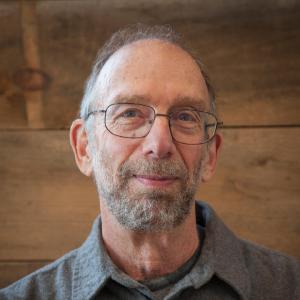 My Turn: The truth about time spent on MCAS testing
My Turn: The truth about time spent on MCAS testing
 GMLB, Newt Guilbault gets seasons underway Sunday (PHOTOS)
GMLB, Newt Guilbault gets seasons underway Sunday (PHOTOS)
 Millers Meadow idea would ‘completely transform’ Colrain Street lot in Greenfield
Millers Meadow idea would ‘completely transform’ Colrain Street lot in Greenfield
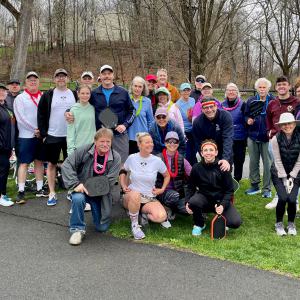 Bulletin Board: Gary Tashjian, Cheri McCarthy win Twice As Smart Pickleball Tournament
Bulletin Board: Gary Tashjian, Cheri McCarthy win Twice As Smart Pickleball Tournament
 Greenfield Girls Softball League opens its 2024 season (PHOTOS)
Greenfield Girls Softball League opens its 2024 season (PHOTOS)
“Bills are ideas and people power is what makes them better and gets them passed,” Comerford said. “As state senators, we work for you. When you let us know what issues are important for you, we will prioritize these issues because of your advocacy. Constituents have let me know that protecting our environment is crucial to them, so my team and I have several bills this session to address PFAS, solar energy, and carbon pollution, among other key topics.”
Bram Moreinis, a public school educator and climate activist, spoke about his efforts to get schools to teach about the climate. He believes our young people need to understand the environment they will become adults in, choosing appropriate careers and developing the mindset to deal with a warming and increasingly chaotic and damaged world.
“Although teachers know they should teach about the climate, they say they don’t feel comfortable teaching outside their area of expertise. Massachusetts does not currently require schools to teach about the climate except in 11th grade science, and the topic is way bigger than just science,” Moreinis explained.
“Administrators may also be leery of parents with political affiliations that frame climate change as a partisan issue. The value of education bill H. 496 is that it asks teachers in all content areas to cover climate change and combines with the Massachusetts Civics standards to encourage students to take action in their communities.”
“Let me see a show of hands: Who has made a mistake in the past six months?” That was the opening question activist Al Norman asked the audience. Most hands in the room went up, including Norman’s. “We all make mistakes,” he said. “When mistakes are made by our mayor or City Council, we, the people, are their safety net. When a vote is taken that’s out of step with what citizens want, we can use our direct democracy tools to repair it.”
Norman said that typical “direct democracy tools” are found in the Greenfield city charter. One person has the right to bring a petition to the City Council or School Committee. One hundred voters can bring a petition that requires the City Council to “take action” on an issue. Just 1,014 voters can start a citizens initiative process. Three hundred and thirty-eight voters can initiate a citizens referendum to rescind a City Council vote.
Norman further said that citizens have the right to present issues to our local legislators for their consideration. We can gather signatures and move an issue to a direct popular vote often with very significant results — like the vote to move forward with a new library.
Norman went on to review a 50-year timeline of “direct democracy” actions in Franklin County, including the 1974 toppling of a weather tower for a proposed twin nuclear power plant on the Montague Plains; opposition to a 500-mile gas pipeline through Franklin County that was defeated in 1977 and in 2016; the defeat at the ballot box of a biomass incinerator in 2010; public pressure to clean up Lunt Silversmith in 2021; efforts to stop cell towers in the West County in 2022; the controversies over logging in the Wendell State Forest; and pushback to the FirstLight pump storage peak power plant at Northfield Mountain.
“All these events changed the course of environmental justice in our county,” Norman said, “and all of them were started by direct democracy.”
The Green Team at The Episcopal Church of Saints James and Andrew is part of the broader movement in the Dioceses of Massachusetts learning and advocating for environmental justice, and solutions to our climate crisis. Ella Ingraham lives in Turners Falls. She is the coordinator of the Green Team and can be reached at ejmai127@gmail.com.

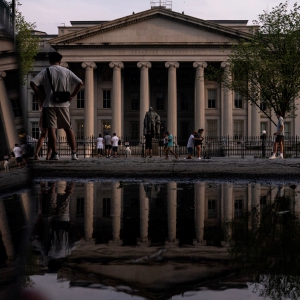 My Turn: National debt — A threat to our nation’s future
My Turn: National debt — A threat to our nation’s future Josie Silva: Voting age impacts voter turnout
Josie Silva: Voting age impacts voter turnout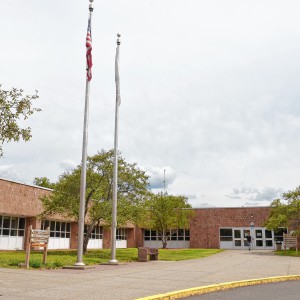 Ferd Wulkan: Green schools are possible
Ferd Wulkan: Green schools are possible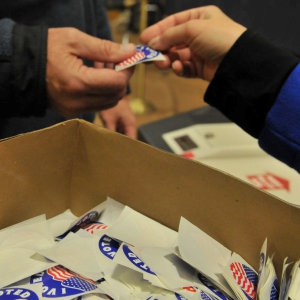 Jessica Corwin: Lower voting age to strengthen democracy
Jessica Corwin: Lower voting age to strengthen democracy
